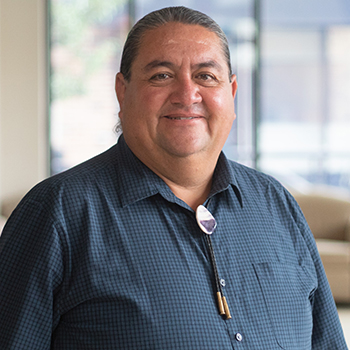
Illustrations by Eline Schipperen
While some consider an August Federal Court of Appeal ruling to overturn the issuing of construction permits for the Trans Mountain Pipeline a setback, many Indigenous and environmental rights advocates consider it a victory.
In its decision, the court ruled that the government – which purchased the project last May from Houston-based Kinder Morgan for $4.5 billion – failed to carry out its duty to consult with Indigenous communities that would be affected by the pipeline, which is designed to carry crude and refined oil from Alberta to ocean ports in British Columbia.
The court's ruling – which said consultation was “missing a genuine and sustained effort to pursue meaningful, two-way dialogue” – is an example of the need for an improved standard of engaging with Indigenous peoples and their constitutionally protected rights.
A framework for such an improved standard is outlined in the principles of "free, prior and informed consent," or FPIC, contained in the United Nations Declaration on the Rights of Indigenous Peoples (UNDRIP). A team of Indigenous and allied scholars at Laurier is researching the opportunities outlined in free, prior and informed consent, which represents an important advancement as Indigenous peoples continue to encounter requests for development on their lands within Canada and around the world.

As a country engaging in a period of reconciliation, we have come to learn and understand more about the legacy of harm that Canada’s “Indian” social policies have had on First Nations, Inuit and Métis peoples. Our team of Indigenous and allied scholars emerged as a research cluster at Laurier in 2008 to advance understanding of colonial trauma and related health disparities.
As we became more engaged in this work, it became clear that Canada’s outdated and unjust laws and social policies have prevented Indigenous peoples from enjoying the basic human right of self-determination and that addressing health disparities would require political solutions.
In 2014, we established the Indigenous Rights and Resource Governance Research Group in the belief that the ongoing demand for development and resource extraction on Indigenous lands could produce an opportunity for Indigenous peoples to exercise their inherent rights to their lands and secure access to basic infrastructure and human rights.

Our group is involved in partnerships and collaborations with Indigenous communities and organizations in Canada and South America to advance self-determined development and community wellness. As examples, we are working in collaboration with the Government of Nunavut on an initiative involving social determinants of crime prevention and with Six Nations Polytechnic in Ontario on a poverty reduction strategy.
We have also been involved in delivering community development training for Beausoleil First Nation in Ontario and work closely with Matawa First Nations, a tribal council with nine member Ojibway and Cree First Nations, on understanding the right to free, prior and informed consent included in the 2007 UN Declaration on the Rights of Indigenous Peoples.
FPIC requires that Indigenous communities offer free, prior and informed consent when governments are considering legislative or administrative measures that could affect Indigenous peoples’ rights. In Canada – which endorsed UNDRIP in 2010 – FPIC is of particular importance and especially controversial in relation to the extraction of natural resources on Indigenous territories. In countries like Canada and Chile, new economic growth is increasingly tied to the expansion of already significant natural resource sectors. For these countries, implementing FPIC is crucial for addressing existing social conflicts regarding resource extraction on Indigenous territories and for ensuring that future development occurs in ways that are just and sustainable.
The implementation of these rights is crucial to secure a future of sustainable development that respects and honours Indigenous traditions of governance and environmental stewardship while preserving and enhancing Indigenous peoples' ability to exist as culturally distinct. Our research involves case studies in Canada, supplemented by comparative cases from Chile, in order to establish best practices for implementing FPIC. We are examining the relationship between the standards associated with FPIC and the rights of Indigenous peoples already enshrined in national law, such as Section 35 of the Canadian Constitution, which recognizes Indigenous treaty rights.

At the core of our work is the recognition and incorporation of Indigenous peoples' practices of self-determination and environmental stewardship. There are two central questions addressed by this research. The first: What are the standards and practices of cultural recognition, respect and intercultural communication that must be enacted in relationships between Indigenous communities, government and industry in order to establish meaningful and legitimate agreements around the development of natural resources? The second: How can domestic and international Indigenous rights frameworks be harmonized in different jurisdictions given existing legal orders and patterns of social conflict?
One key finding confirmed immediately is the limited knowledge and awareness at the grassroots level in Indigenous communities regarding advancements in international rights frameworks related to Indigenous peoples. Mobilizing this knowledge is key. If Indigenous peoples want to assert their human rights, they must know and understand how various nation states are recognizing and fulfilling their obligations to recognize Indigenous peoples’ rights.
To support this knowledge mobilization effort, we worked with Pedro Poblete Lasserre, an international exchange student from Chile. We implemented a “user-focused design” approach to develop two websites: whatis.fpic.info and fpic.info. These websites have been developed with the intent to make these complicated issues of domestic and international laws and Indigenous rights accessible to everyone. We have archived a global catalogue of research, case studies, media, videos and podcasts of leading, emerging, Indigenous and allied researchers that is easily searchable and categorized in terms of content. It is our hope that these tools will support grassroots communities in learning about the internationalization of Indigenous rights.

Our research program is designed to enrich public discourse on Indigenous rights and to promote the development of intercultural processes of FPIC. The research will engage key stakeholders in government, industry, academia and Indigenous communities. By developing a set of best practices for the implementation of FPIC in the Canadian context, the aim is to translate scholarship on intercultural relations into practical tools for fostering more just and sustainable resource governance. Now that it appears Bill C-262 – An Act to ensure that the laws of Canada are in harmony with the United Nations Declaration on the Rights of Indigenous Peoples – will be signed into law, this discourse is more critical than ever.
Intercultural understanding and processes to implement free, prior and informed consent are greatly needed to operationalize international rights standards, to improve Indigenous-state relations and business practices, and to promote sustainable resource governance and the co-generation of wealth in alignment with Canada's goal of reconciliation.
About the authors:
Darren Thomas is Seneca Nation, Bear Clan of the Haudenosaunee and a PhD candidate in Laurier's Community Psychology program. He is also a full-time lecturer in the Indigenous Studies program at Laurier's Brantford campus.
Terry Mitchell is a professor at the Balsillie School of International Affairs. She is currently the co-director of the Pan-American Indigenous Rights and Resource Governance Research Group.
Courtney Arseneau is a PhD student in the Community Psychology program at Laurier who is committed to learning and creating dialogue about Indigenous rights.